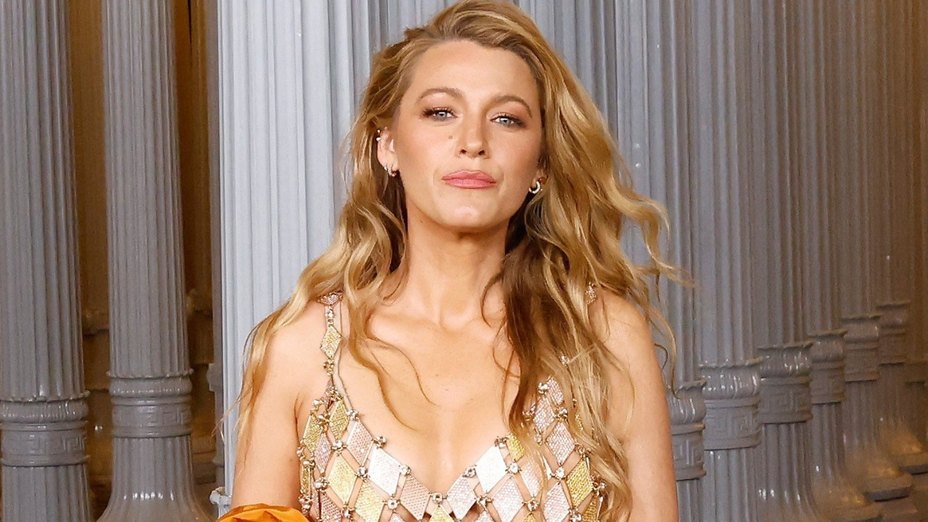In late summer 2014, Victoria Justice woke up to every celebrity’s worst nightmare. Her name was trending worldwide – not for her latest role or album, but because hackers had allegedly stolen and leaked her private photos. The Nickelodeon star, who had grown up in the public eye, suddenly found herself at the center of one of the internet’s most invasive privacy breaches.
“The Fappening,” as it came to be known, wasn’t just another celebrity scandal. It was a massive cyberattack that would forever change how we think about digital privacy, consent, and the dark side of internet culture.
Victoria Justice: From Teen Star to Target
By 2014, Victoria Justice had successfully transitioned from Nickelodeon darling to serious actress and singer. Known for her roles in “Victorious” and “Zoey 101,” she’d built a career on talent and a carefully maintained public image. At just 21 years old, she represented a new generation of stars who’d grown up alongside social media. Learn more about Victoria Justice’s career on IMDb.
Then came the leak. Or rather, the alleged leak.
What made Justice’s situation unique was her immediate and forceful response. While many victims stayed silent or issued statements through publicists, Justice took to Twitter herself. “These so called nudes of me are FAKE people,” she wrote. “Let me nip this in the bud right now. pun intended.”
Her use of humor in such a serious situation was quintessentially Victoria – turning a violating moment into a statement of defiance. But whether the photos were real or fake missed the larger point: she had become a target in a massive criminal operation that violated hundreds of women.
The Anatomy of a Hack
So how did The Fappening actually happen? Forget what you’ve seen in movies – there were no complex algorithms or Matrix-style code streams. The hackers used something far simpler and more insidious: human psychology.
Through phishing emails that looked legitimate, cybercriminals tricked celebrities into entering their Apple iCloud credentials. These weren’t sophisticated hackers in the traditional sense – they were con artists who understood that the weakest link in any security system is often the human using it.
The method was devastatingly effective. Hundreds of accounts were compromised, with victims ranging from A-list movie stars to models, musicians, and yes, former teen TV stars like Victoria Justice. The hackers didn’t discriminate – if you were famous and female, you were a potential target.
The Immediate Aftermath
When the photos hit sites like 4chan and Reddit in August 2014, the internet went into overdrive. But Victoria Justice’s response stood out for its speed and directness. Within hours, she’d:
- Denied the authenticity of photos attributed to her
- Called out the violation of privacy
- Maintained her sense of humor despite the circumstances
- Refused to be shamed or silenced
“It’s disturbing to see the photos that are being circulated,” she later elaborated in a statement. “Even though they’re not real, the fact that people are so eager to violate someone’s privacy is deeply troubling.”
Her point was crucial. Whether the specific images were real or fabricated, the intent to violate, expose, and humiliate was the same. The truth of individual photos became less important than the larger truth: this was a coordinated attack on women’s privacy and dignity.
The Unique Challenge for Young Stars
For Justice and other young celebrities who’d grown up in the digital age, The Fappening presented particular challenges. This generation had been told to build their brands online, to be accessible to fans, to share their lives on social media. Now that same digital world had turned against them.
Consider Justice’s position: She’d been in the public eye since she was 10 years old. Her entire adolescence and young adulthood had been documented, photographed, and shared. She’d learned to navigate privacy while living in public. But this? This was different. This was an invasion that crossed every boundary.
The psychological impact on young stars was profound. Many reported feeling paranoid about technology, struggling to trust digital platforms, and experiencing anxiety about their online presence. For someone like Justice, whose career depended partly on social media engagement, this created an impossible situation.
The Bigger Picture: A Culture of Entitlement
What The Fappening revealed wasn’t just security flaws in cloud storage – it exposed something darker about our culture. The speed with which the photos spread, the eagerness with which they were consumed, and the jokes and memes that followed all pointed to a troubling reality: many people felt entitled to women’s bodies, especially famous women’s bodies.
Victoria Justice’s case highlighted this perfectly. Even when she stated the photos were fake, people continued to share and discuss them. The truth didn’t matter as much as the titillation. The violation became entertainment.
This wasn’t just about technology or crime – it was about how we view female celebrities. Somewhere along the line, we’d decided that fame meant forfeiting all privacy, that public figures owed us everything, including their most intimate moments.
Legal Consequences and Systemic Failures
The FBI launched “Operation Hackerazzi” to track down the perpetrators. Eventually, several individuals were arrested and convicted, including Ryan Collins, who was sentenced to 18 months in federal prison. But here’s what’s frustrating: the legal system seemed woefully unprepared for crimes of this magnitude and nature.
The sentences felt light compared to the damage done. Eighteen months for violating hundreds of women’s privacy? For causing psychological trauma that would last years? For fundamentally changing how these women could exist in digital spaces?
Moreover, the legal focus was on the hacking itself, not on those who distributed or consumed the stolen content. The thousands who shared the photos, the websites that hosted them, the people who saved them – most faced no consequences at all.
Tech Companies Wake Up (Sort Of)
If there was a silver lining to The Fappening, it was that tech companies finally started taking security seriously. Apple, in particular, faced intense scrutiny about its iCloud security. The company responded by:
- Making two-factor authentication more prominent
- Sending alerts when accounts were accessed from new devices
- Improving their response to security breaches
- Investing more in user education about phishing prevention
But critics argued these changes should have come before a massive breach, not after. The fact that it took hundreds of women being violated for tech companies to implement basic security improvements spoke volumes about priorities in Silicon Valley.
Victoria Justice: Moving Forward
In the years following The Fappening, Victoria Justice has continued to build her career, starring in films, releasing music, and maintaining an active social media presence. Her response to the breach became a template for how to handle such violations: be direct, be strong, don’t let shame win.
But she’s also been open about the lasting impact. In interviews, she’s discussed how the incident changed her relationship with technology and privacy. She’s become an advocate for digital literacy and security, especially for young people entering the entertainment industry.
“You can’t live in fear,” she said in one interview. “But you can be smart. You can protect yourself. And most importantly, you can refuse to be ashamed of something that wasn’t your fault.”
Lessons Learned (Or Not)
Years later, it’s worth asking: did we actually learn anything from The Fappening? In some ways, yes. Security is tighter, two-factor authentication is standard, and there’s more awareness about phishing scams. Victoria Justice and other victims’ refusal to be shamed helped change the conversation around revenge porn and privacy violations.
But in other ways, we haven’t progressed much. Non-consensual sharing of intimate images remains a massive problem. Deep fakes and AI-generated explicit content present new challenges. The fundamental attitude that women’s bodies are public property persists in many corners of the internet.
A Call for Real Change
Victoria Justice’s experience during The Fappening – her violation, her response, and her resilience – offers important lessons:
- Privacy is a right, not a privilege – Being famous doesn’t mean surrendering your humanity
- Victim-blaming solves nothing – The focus should be on perpetrators, not on what victims could have done differently
- Tech companies must prioritize user safety – Not just after breaches, but before
- We all play a role – Every person who shares, views, or jokes about stolen content is complicit
- Resilience doesn’t mean it’s okay – Just because victims like Justice moved forward doesn’t minimize the violation
Where We Go From Here
The Fappening wasn’t just a 2014 problem – it was a preview of ongoing challenges in our digital age. For Victoria Justice and hundreds of other victims, it was a life-changing violation that happened to occur in public view. Their experiences should serve as a constant reminder of the human cost of treating privacy as optional.
As we continue to upload our lives to the cloud, share our moments online, and trust our secrets to digital platforms, we need to remember the lessons of The Fappening. We need better laws, better security, and most importantly, better attitudes about consent and privacy.
Victoria Justice showed us how to respond to violation with strength and refuse to be defined by others’ crimes. Now it’s on the rest of us to create a digital world where such strength isn’t necessary – where privacy is protected, consent is paramount, and no one has to wake up to find their most private moments turned into public consumption.
Because at the end of the day, The Fappening wasn’t really about celebrity photos. It was about who we are as a society and what we’re willing to accept. Victoria Justice and others said “no more.” The question is: are we listening?
Resources and Support
For Digital Security:
- Electronic Frontier Foundation’s Surveillance Self-Defense – Comprehensive guides for protecting your digital privacy
- National Cyber Security Alliance – Tips and resources for online safety
- Two-Factor Authentication Directory – Find out which services support 2FA
For Victims of Privacy Violations:
- Cyber Civil Rights Initiative – Support for victims of non-consensual pornography
- CCRI’s 24/7 Helpline – Confidential support: 844-878-CCRI (2274)
- Without My Consent – Resources for victims of online privacy violations
Legal Resources:
- FBI Internet Crime Complaint Center – Report cybercrimes
- Privacy Rights Clearinghouse – Know your privacy rights
- National Network to End Domestic Violence – Technology safety resources
Educational Resources:
- Common Sense Media – Digital literacy for young people
- ConnectSafely – Parent and teen guides for online safety
StopBullying.gov – Information on cyberbullying and online harassment





